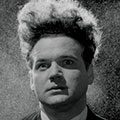Through my degree so far I’ve discovered that my talents — such that they are — most certainly do not lie in the narrative fiction side of filmmaking. For one thing, I struggle to come up with creative ideas for stories and characters. That seems like a major area that a filmmaker should generally be across. But I’m also rubbish with devising/setting up shots, and my technical camera skills are nowhere near as good as most other people I’ve worked with. Stanley Kubrick I am not.
But I have realised that I harbour ambitions of working as a writer, journalist, radio producer or documentary maker (in audio or film) — creative fields that align with my interests but also align with some of the skills that I do already possess. In previous studios I’ve dipped my toe into short subject documentary and audio narrative nonfiction, both of which I really enjoyed, and the They Film People, Don’t They studio seems like one that would help me further develop those skills (and, hopefully, the technical side of camera work and sound recording too).
Also, after being a part of the Room With a View studio last year, I decided that one of my goals for 2018 is to work more on audio production and radio narrative nonfiction, so if I’m able to work in audio this semester I would be stoked.
The other major aspect of the studio that appeals to me is the question of ethics in documentary making. I was going through my ratings of documentaries on Letterboxd and noticed that many of the ones near the top (i.e., my favourite docs) deal with complex moral subject matter or have interesting ethical concerns related to their production: Hoop Dreams, Night and Fog, The Fog of War (and, let’s be honest, all of Errol Morris’s films), The Act of Killing, The Work, the Paradise Lost films… I think I tend to gravitate towards films that pose questions about consent/conflicts of interest or somehow blur the line between fact and fiction. I’d like to delve deeper into questions around what “actuality” is, and how different filmmakers deal with (or don’t deal with) these ethical concerns.
So at the very least, I hope one thing I’ll draw from this studio is a deeper understanding of the films I love to watch, and the critical faculties to better understand the documentary making process.
In summary, what I want to learn from this studio:
- Film production processes and best practices
- Camera work / cinematography skills
- Tips for finding subjects and the interview process
- Audio storytelling
